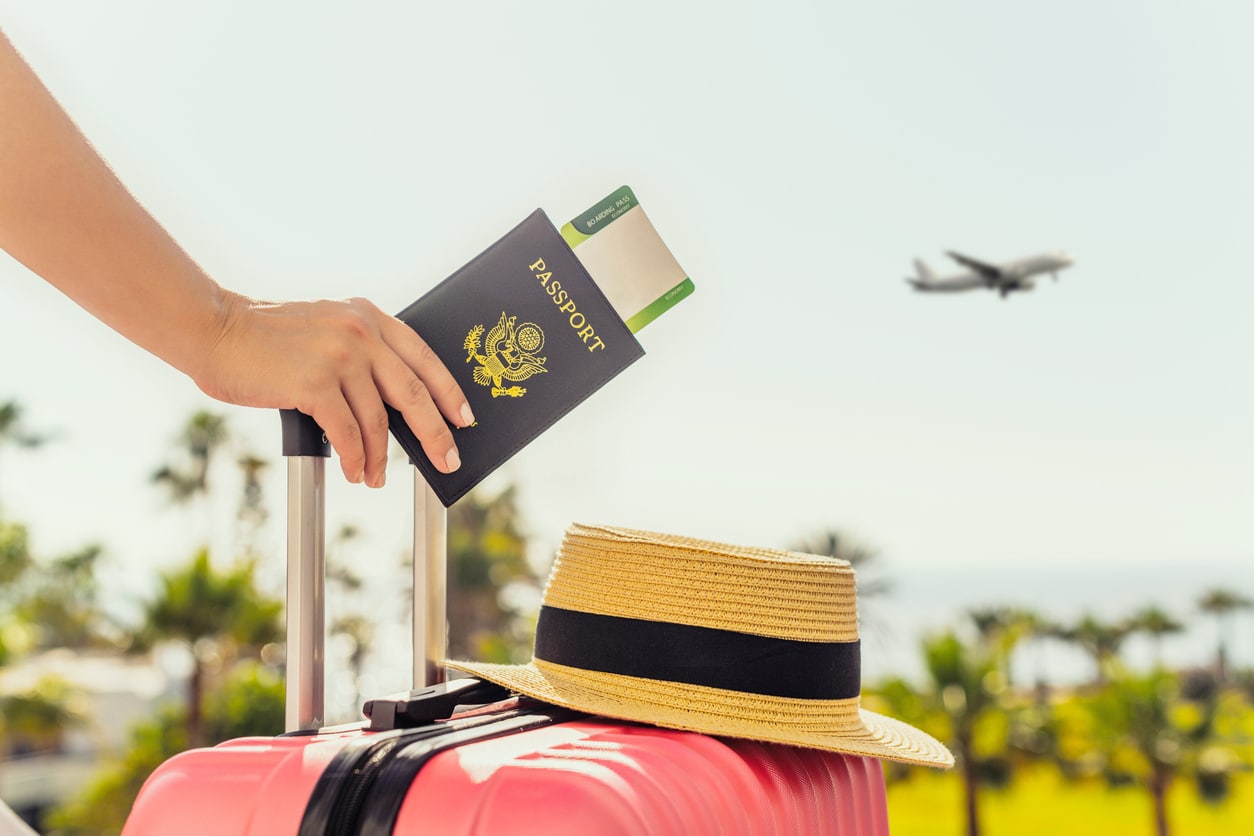How an FBAR Joint Account with a Non-US Citizen Works

IRS data from 2016-2021 shows nearly two out of three expats owe $0 in US taxes after using available exclusions and credits. The same relief applies to FBAR filing: when you share foreign accounts with a non-US citizen spouse, specific rules can simplify your reporting requirements significantly.
If you have joint foreign accounts that exceed $10,000 in aggregate value at any time during the year, you must file an FBAR (Foreign Bank Account Report) – even when your spouse isn’t a US person. Your non-US spouse has no FBAR obligations, regardless of how much money is in the account.
Can One Spouse File an FBAR for Both?
The IRS allows married couples to file a single FBAR under particular conditions. All three of these requirements must be met: (1) all foreign accounts that the non-filing spouse must report are jointly owned with the filing spouse, (2) the filing spouse reports the jointly-owned accounts on a timely-filed FBAR electronically signed, and (3) both spouses have completed and signed Form 114a.
Your income tax filing status doesn’t matter here. Whether you file taxes as married filing jointly or married filing separately has zero impact on FBAR requirements.
The Form 114a Authorization
Form 114a is the “Record of Authorization to File FBARs Electronically”. Both spouses must sign this form, but you keep it in your records – don’t send it to FinCEN. This document authorizes one spouse to file the FBAR electronically for both parties.
Even though the form mentions “both signatures,” the e-filing system only accepts one digital signature. The Form 114a satisfies the two-signature requirement by documenting the non-filing spouse’s authorization.
When Must You File Separately?
If any of the three conditions above aren’t met, both spouses must file separate FBARs. Common scenarios requiring separate filings include:
- Your non-US spouse has individual accounts (not jointly owned)
- You have individual accounts that your spouse doesn’t share
- Either spouse missed the April 15 deadline
- You haven’t completed Form 114a
When filing separately, each spouse must report the entire value of jointly owned accounts – not just their percentage share.
Do You Report Your Spouse’s Individual Accounts?
Here’s where it gets simpler: You don’t have to report your non-US spouse’s individual foreign accounts if you don’t have signing authority over them. If your spouse owns bank accounts, investment accounts, or other financial accounts overseas that you can’t access or control, those accounts don’t appear on your FBAR filing.
This applies even if you’re aware of the accounts or even if some of your money went into them initially. You have no FBAR reporting obligation for those accounts without a signing authority.
Example: David and Maria in Germany
David (US citizen) and Maria (German citizen) live in Berlin. They have:
- Joint checking account: €15,000
- Joint savings account: €8,000
- Maria’s individual account: €12,000
- David’s individual account: €5,000
Reportable total in euros:
€15,000 + €8,000 + €5,000 = €28,000
Maria’s individual €12,000 account is not reported because David does not have signing authority or a financial interest in that account.
David must convert the €28,000 total to US dollars using the December 31 Treasury exchange rate for the relevant tax year.
Since the converted total exceeds $10,000, David is required to file an FBAR.
How Does the $10,000 Threshold Work?
The FBAR requirement triggers when your foreign financial accounts exceed $10,000 in aggregate at any time during the calendar year. This means all your reportable accounts combined, not each account individually.
The threshold applies to the highest balance during the year. If your accounts totaled $10,001 for even one day, you must file an FBAR for the entire year.
Always convert foreign currency balances to US dollars using the Treasury’s exchange rate as of December 31 of the reporting year. Use the rates from the Treasury’s website, not your bank’s rates or online converters.
What Are the FBAR Filing Deadlines?
The FBAR is due April 15 following the calendar year reported, with an automatic extension to October 15. You don’t need to request this extension—it’s automatic if you miss the April deadline.
Unlike tax returns, there’s no penalty for using the extension period, assuming you file by October 15 and haven’t been contacted by the IRS about your late filing.
Timeline for 2025 Tax Year (Filed in 2026)
- Calendar year: January 1 – December 31, 2025
- FBAR due date: April 15, 2026
- Automatic extension: October 15, 2026
What About Common Expat Scenarios?
Corporate Expats with Housing Allowances
Many multinational companies provide housing allowances that flow through joint accounts. Your non-US spouse may manage day-to-day expenses while you maintain signing authority. As long as you can access the account, it’s reportable regardless of who uses it most.
Entrepreneur Expats with Business Accounts
If you and your non-US spouse jointly own business accounts overseas, these count toward your $10,000 threshold. Business checking, savings, and investment accounts all require FBAR reporting when you have joint ownership or signing authority.
Nomadic Couples Across Multiple Countries
Frequent movers often maintain accounts in several countries. Your FBAR must include all foreign accounts worldwide – whether they’re in your current country, previous countries, or anywhere else outside the US.
What If You’re Behind on FBAR Filing?
Late filers shouldn’t panic. If the IRS hasn’t contacted you about missing FBARs, you should file late FBARs as soon as possible to keep potential penalties to a minimum.
The BSA E-Filing System allows you to enter previous calendar years and explain your reason for late filing. Many expats successfully catch up on multiple years without penalties, especially when they can demonstrate reasonable cause.
Streamlined Procedures Option
The IRS offers streamlined filing compliance procedures for significantly delinquent filers. This program allows qualifying expats to catch up on tax returns and FBARs with minimal penalties, provided the non-compliance wasn’t willful.
What Records Must You Keep?
You must keep records for each reported account for five years from the FBAR due date. Required information includes:
- Account holder names and addresses
- Account numbers and types
- Financial institution names and addresses
- Maximum account values during the year
Bank statements typically contain all required information, making them the easiest records to maintain.
What Are Your Next Steps?
If you’re married to a non-US citizen and have foreign accounts exceeding $10,000:
- Determine your accounts: List all foreign accounts where you have a financial interest or signing authority
- Calculate the threshold: Add the maximum balances during the year (converted to USD)
- Choose your filing method: Decide whether to file jointly (with Form 114a) or separately
- Gather required information: Account details, maximum balances, and institution information
- File by the deadline: April 15, or October 15, with automatic extension
FBAR is separate from your tax return and doesn’t determine your tax liability. Having foreign accounts doesn’t mean you owe US taxes, especially with protections like the Foreign Earned Income Exclusion and Foreign Tax Credit.
How Can You Get Help with Complex Situations?
FBAR compliance seems straightforward until you encounter edge cases: signature authority changes, account closures mid-year, currency fluctuations, or multiple years of missed filings. These situations require careful analysis to ensure full compliance.
No matter how late, messy, or complex your FBAR situation may be, we can help. You’ll have peace of mind, knowing that your foreign account reporting was done right.
Ready to get your FBAR filing handled correctly? If you’re ready to be matched with a Greenback accountant, click the get started button below. For general questions on expat taxes or working with Greenback, contact our Customer Champions.
This information is general and shouldn’t be considered personalized tax advice. Tax laws change frequently, and individual situations vary significantly. Always consult with a qualified tax professional for advice specific to your circumstances.



